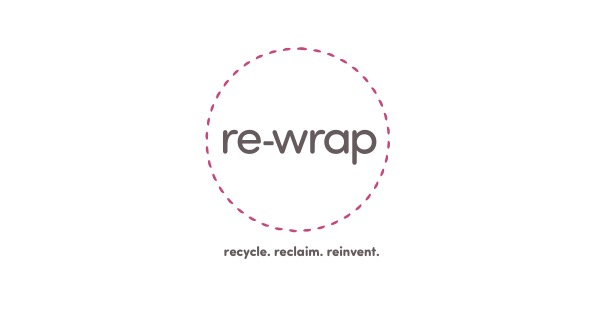



The re-wrap Association CIC

London Borough of Islington, United Kingdom
October 2022
Other retail sale
Wholesale/Retail
India,
United Kingdom
re-wrap is a social enterprise dedicated to uplifting rural women and farming communities in India. Established in 2002, re-wrap crafts premium quality and reusable organic cotton tote bags, fabric gift wraps, pouches, tea towels and aprons. Every product is bespoke and supplied to a prestigious range of international clients on a B2B basis. The organization supports over 3,600 farmers with education and funding, enabling them to grow organic cotton sustainably using nature-led and climate-resilient farming practices. Once the cotton is woven into fabric, it is crafted into products by highly skilled female artisans, who also benefit from the support re-wrap offers them. The organisation's seed-to-shop process is fully traceable, from planting the cotton seeds to the final product delivery to customers. re-wrap focuses on purpose over profit. They measure success through their social and environmental impact, adopting business practices that prioritise the planet and its people. re-wrap has a dedicated Indian supply chain, Sanmaan Exports, which is also fully certified as a B Corp Organisation, demonstrating their deep commitment to meaningful and positive impact.
Overall B Impact Score
Governance 8.7
Governance evaluates a company's overall mission, engagement around its social/environmental impact, ethics, and transparency. This section also evaluates the ability of a company to protect their mission and formally consider stakeholders in decision making through their corporate structure (e.g. benefit corporation) or corporate governing documents.
Governance 8.7
Governance evaluates a company's overall mission, engagement around its social/environmental impact, ethics, and transparency. This section also evaluates the ability of a company to protect their mission and formally consider stakeholders in decision making through their corporate structure (e.g. benefit corporation) or corporate governing documents.
Workers 19.1
Workers evaluates a company’s contributions to its employees’ financial security, health & safety, wellness, career development, and engagement & satisfaction. In addition, this section recognizes business models designed to benefit workers, such as companies that are at least 40% owned by non-executive employees and those that have workforce development programs to support individuals with barriers to employment.
Community 40.1
Community evaluates a company’s engagement with and impact on the communities in which it operates, hires from, and sources from. Topics include diversity, equity & inclusion, economic impact, civic engagement, charitable giving, and supply chain management. In addition, this section recognizes business models that are designed to address specific community-oriented problems, such as poverty alleviation through fair trade sourcing or distribution via microenterprises, producer cooperative models, locally focused economic development, and formal charitable giving commitments.
Environment 33.9
Environment evaluates a company’s overall environmental management practices as well as its impact on the air, climate, water, land, and biodiversity. This includes the direct impact of a company’s operations and, when applicable its supply chain and distribution channels. This section also recognizes companies with environmentally innovative production processes and those that sell products or services that have a positive environmental impact. Some examples might include products and services that create renewable energy, reduce consumption or waste, conserve land or wildlife, provide less toxic alternatives to the market, or educate people about environmental problems.
Customers 3.0
Customers evaluates a company’s stewardship of its customers through the quality of its products and services, ethical marketing, data privacy and security, and feedback channels. In addition, this section recognizes products or services that are designed to address a particular social problem for or through its customers, such as health or educational products, arts & media products, serving underserved customers/clients, and services that improve the social impact of other businesses or organizations.